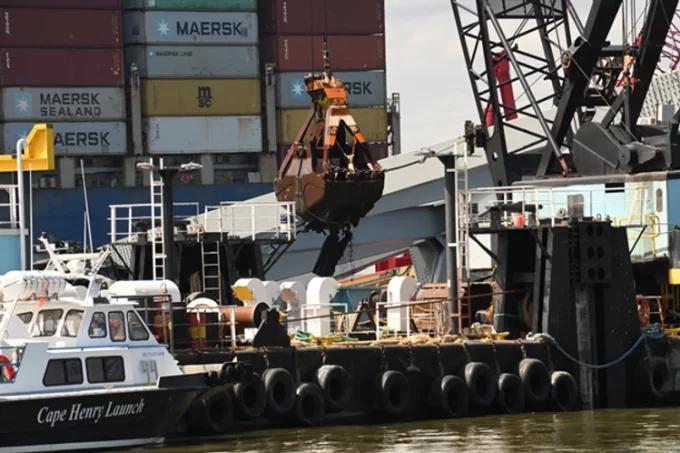Russian 'dark fleet' an ecological disaster threat, claim Baltic shipowners
Operating from a country with views of the port of St Petersburg, the Finnish Shipowners’ ...

Cargo stakeholders affected by the incident at Francis Scott Key Bridge could be required to pay security deposits before they get their cargo back, as General Average has likely been declared.
On 26 March, the 9,000 teu Dali crashed into a support pylon of the Francis Scott Key Bridge, causing significant damage to the ship, on-board cargo, and the bridge itself. The tragic incident also took six lives.
As the maritime industry grasps the sheer scale of destruction, questions have been raised about who will ultimately ...
Amazon pushes into LTL for small package fulfilment and UPS does a u-turn
New senior management for DSV as it readies for DB Schenker takeover
Volumes set to 'fall off a cliff' as US firms hit the brakes on sourcing and bookings
Asian exporters scramble for ships and boxes to beat 90-day tariff pause
Temporary tariff relief brings on early transpacific peak season
'Tariff madness' will prompt renegotiation of ocean shipping contracts
Response to tariffs by Chinese importers may see extra costs for US shippers
Forwarders 'allowing the fox into the chicken run' by supporting 'hungry' carriers

Comment on this article
Marta Beatriz Castro
April 13, 2024 at 3:41 amFrom my experience as a claims manager for shipping lines and having dealt with various GA (General Average) incidents, I believe it is important to clarify that once declared, a “refuge” port must be designated where the vessel will dock. All cargo on board will be temporarily detained until each cargo owner presents the corresponding documents defining the CIF value of their goods. This information will be reflected in the forms provided by the General Adjuster.
Once the mentioned documents are submitted, the cargo can be released. However, it is important to note that undamaged goods in the collision will contribute, based on a predetermined percentage of their value, to offset the costs of damaged cargo in the incident.
Undoubtedly, this is a complex procedure and in this particular case, given the number of parties involved and especially due to the loss of human lives, it becomes even more challenging.